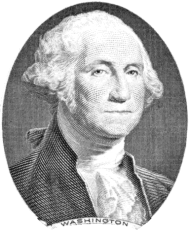Slavery was the most celebrated flaw of the founding fathers, but they also set the stage for the genocide of about 10 million American Indians and did not even entirely reject colonialism. They believed that it was wrong to tax colonists who did not have representation in the legislature, but the tax, not the lack of representation, was the grievance. They were affluent men of property, and they hated paying taxes. Ironically, they repeatedly used words like "enslavement" and "slavery" to criticize taxes while at the same time accepting real slavery.


1 comment:
The Founding Fathers had a very balanced view toward the Native populations of America - they were friendly with some tribes and not so friendly with others. It basically came down to which tribes supported the British and which didn't.
I would also point out that there were plenty of atrocities committed on BOTH sides - white colonials and the native inhabitants.
Lastly, you're incorrect that the Founders were upset about "taxes" more so than the representation issue. I could line up numerous original source documents to show that they were most interested in the issues of self-government and democratic representation.
Your understanding of the Founding Fathers and the American Revolution sadly reflects the typical, liberal and inaccurate image painted by the likes of Howard Zinn, Noam Chomsky, etc.
-Brian Tubbs
http://americanfounding.blogspot.com
Post a Comment